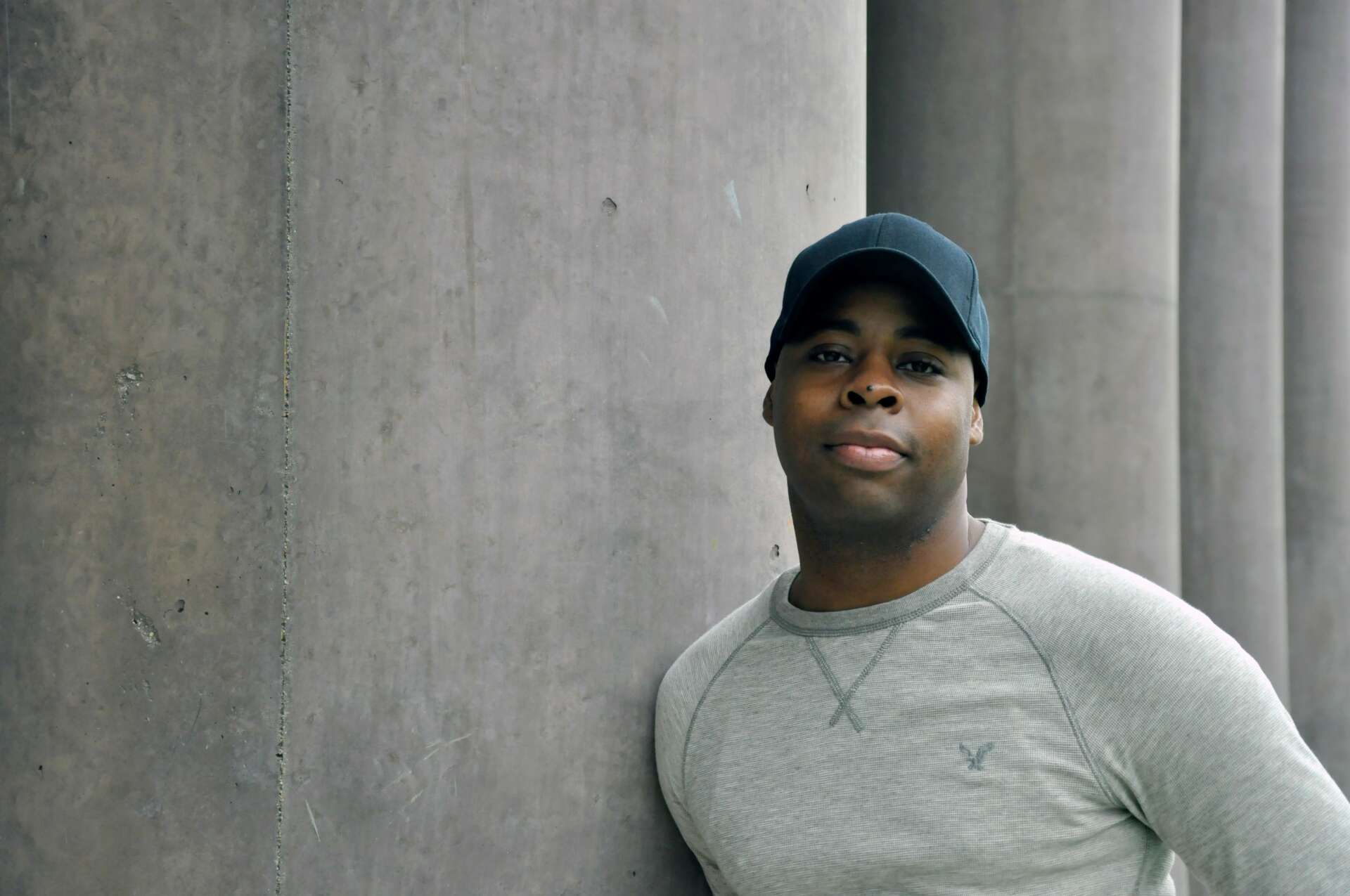We caught up with the brilliant and insightful Jerrell L. Henderson a few weeks ago and have shared our conversation below.
Jerrell L. , looking forward to hearing all of your stories today. What’s been the most meaningful project you’ve worked on?
Earlier this year (2023), I directed a production of the musical Ragtime at Metropolis Performing Arts Centre in Arlington Heights, IL. For those unaware, Ragtime is a large-scale musical book by Terrence McNally, music by Stephen Flaherty, lyrics by Lynn Ahrens. The show opened on Broadway in 1998 (the same year as The Lion King). Nominated for Best Musical, Ragtime would take home the Tony Award for Best Book and Best Score. It further launched the careers of contemporary musical theatre legends Brian Stokes Mitchell and Audra McDonald.
My experience serving as director of this production remains meaningful for a few reasons. First, the theatre producing the musical found me. In reality freelance theatre directors must be vigilant regarding the process of networking in order to connect with potential producers, artistic directors, etc. Nothing is guaranteed in this process and anything resembling the concept of “fair” is rare almost to the point of being myth.
It meant a great deal to me that the head of a theatre company took the time to seek artists out, found me, and took a chance on me to direct at their theatre. Due to the precarious time we are currently in, I would work with three more artistic directors (two interim) before the show opened. The process gave me a multitude of opportunities to look within myself in order to verify the “why” behind why I not only wanted to direct the musical Ragtime but why I wanted to direct the musical with the creatives at this particular institution. The process left me with a solid awareness of the responsibility I felt to myself, the production, and the theatre company in terms of how the story was told and how rehearsals and tech was run.
Second, Ragtime was the first large scale American musical I have been gifted the opportunity to direct. I came into the project with a pretty serious process of analysis but working on this musical took that process to a whole other level in terms of boiling down story clarity through character interaction, plot progression, and music progression. The closer the production came to tech/performance the more I was able to witness an impressive unity which comes from having built, with creative collaborators and cast, a world in which everything on stage had a meaning and value which served the version of the story I sought to tell. This includes, without altering dialogue or music, clarifying the track of Sarah’s Friend and implementing iconography and signage from the era in which the story takes place. These plot-driven creative choices further anchored the events occuring in the production (set in the early 1900s) to events happening today.
Finally, this production taught me fundamental lessons regarding professional transparency and accountability. No path to opening night is short of hurdles and potholes. The question is, when trouble does rear its head, how will you respond? How do you regain trust when it begins to waver? How do you take responsibility for missteps? How do you ask for assistance when you know you need it? How will you lead when the group needs a steady leader? I would wrestle with all of these challenges in a way which seemed to encourage unity. Unity of cast, unity of crew, unity of production. These are the hard won lessons I plan to carry with me for the remainder of my career.
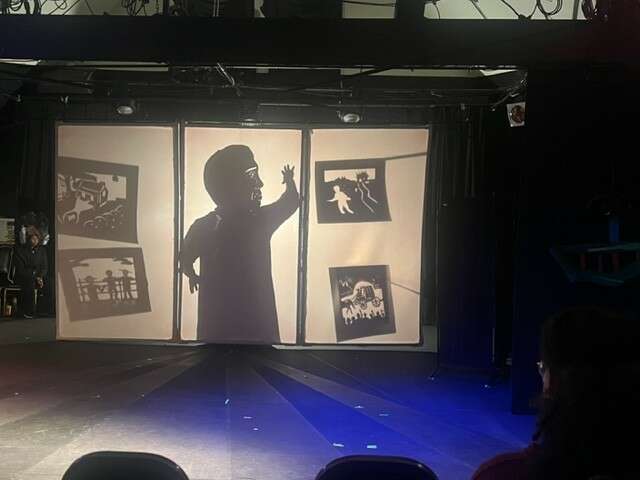
Awesome – so before we get into the rest of our questions, can you briefly introduce yourself to our readers.
At roughly seven years old, I took my first steps on a stage while studying with The New Freedom Theatre in Philadelphia, PA. In the days when John Allen was still alive, and as I learned many years later when I returned to teach the class I once took, Black Pride, Self-Awareness, and an endless curiosity for the world I sought to represent onstage was the mission statement instilled in every aspect of performance we tackled. Everything from devising a soul-opera version of the alphabet, to Ailey inspired dance numbers, to performing scenes from Macbeth. We did it all…but we did it our way.
Over the course of nine years, I cut my teeth as a young performer, teacher, and director while working in the education department of the Walnut Street Theatre in Philly. For roughly five of those years, I answered phones and took sales at the front desk (paper to virtual). Simultaneously while at the Walnut, I received a master’s in life from mentors Charles Dumas and Cathy Simpson. Between the two of them, actors and teachers aIike, I built on my already expanding awareness of what it would mean to live as a Black artist in America. Add to that my time with Walter Dallas and L. Kenneth Richardson who would challenge me to be daring. My many conversations with Paul Carter Harrison and Donald Bogle, both unapologetic Black theatre and film nerds like me. I now wish to share my unique awareness of the world and how it functions aligned with a Black perspective which lets you know that there’s more to making art than what the world reveals.
Currently, I am a Theatre Director, Puppeteer, and African American Theatre Historian and Archivist. Through the mediums of theatre and/or puppetry and film, I seek to disrupt generational curses of self-hate (i.e. racism, homophobia, religious intolerance, etc.). Intellectually curious and emotionally dexterous, I am at home in a number of wide-ranging genres including, but not limited to, American Realism, Magical Realism, Traditional and Contemporary Musical Theatre, Poetic Black-Queer Narratives, and Live Spectacle Events.
Outside of theatre direction, I look forward to investigating ways in which I can continue to expand in the world of virtual theatre, truly a new frontier! My experience during the global shut down lead me towards puppetry in general and puppetry on film specifically. There is something inherently theatrical about puppets and what puppets can do on film that attracted me and I have only enjoyed the process of exploring short films which can be streamed as a form of virtual theatre ever since.
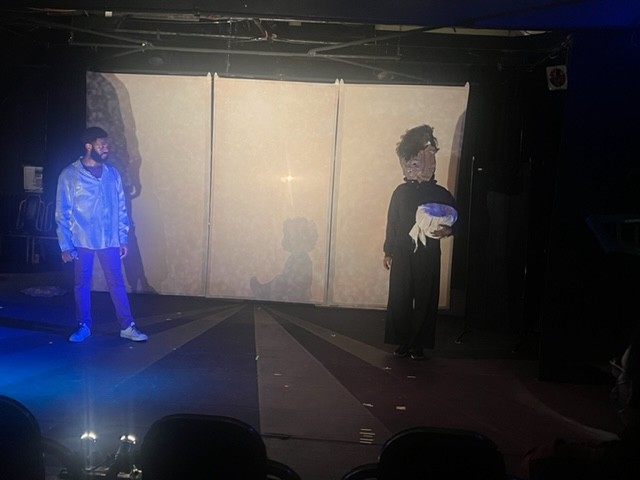
Are there any books, videos, essays or other resources that have significantly impacted your management and entrepreneurial thinking and philosophy?
Invitation to the Party: Building Bridges to the Arts, Culture and Community Paperback by Donna Walker-Kuhne
Toms, Coons, Mulattoes, Mammies, and Bucks: An Interpretive History of Blacks in American Films by Donald Bogle
The People Could Fly by Virginia Hamilton
The Century Cycle by August Wilson
Crumbs from the Table of Joy and Mlima’s Tale by Lynn Nottage
The Brother/Sister Plays by Tarell Alvin McCraney
Master Shots Vol 1 – 3 by Christopher Kenworthy
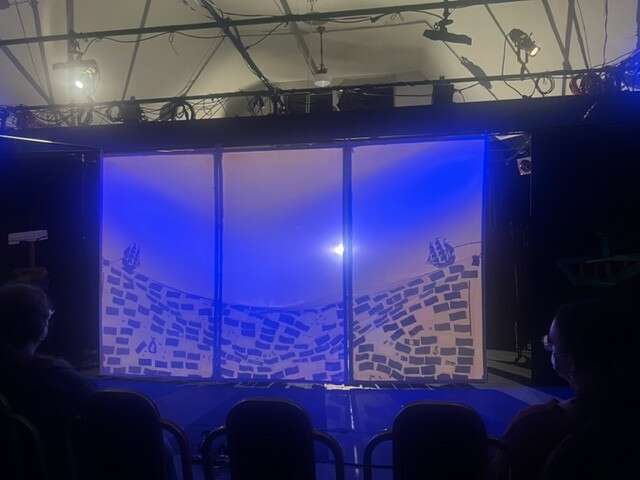
Can you tell us about a time you’ve had to pivot?
During the Covid 19 global shutdown, live theatre was halted. It was at this time I pivotedto puppetry on film. It began as research and ultimately produced three short films.
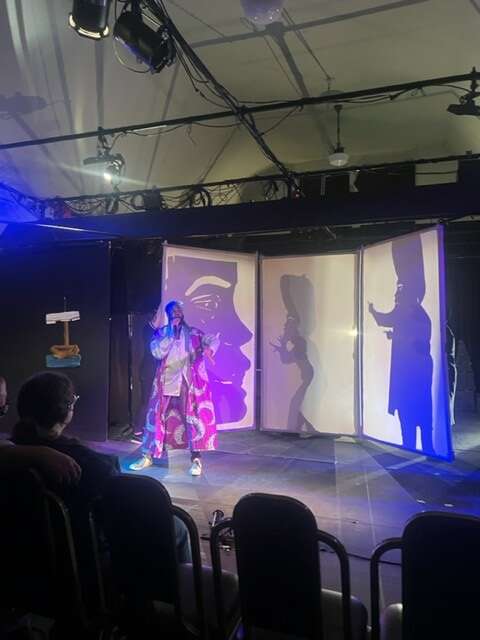
Contact Info:
- Website: https://www.jerrell-henderson.com/
- Instagram: https://www.instagram.com/black_theatre_vinyl_archive/?next=%2Freadytrayspakistan%2Ftagged%2F&ref=Dirty%2BInstagram&hl=id


